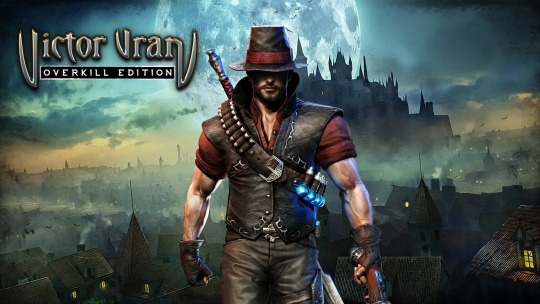#tmc_personal
Text
Essay #9: The Blasphemy and The Triumph in Dismantling Video Game’s Sacred Circle
<Link to Essay #9>
0 notes
Text
Play #8: Beating for the sake of beating?
One of the things I’ve come to appreciate lately is the joy of beating the game for the sake of it. I used to believe that to enjoy a game to its fullest, I have to experience as much content as I can: all of its side quests, all of the optional minigames, all of the secrets, and so on. The thought of skipping these contents rarely crosses my mind, in part because I thought I would have a lesser experience; after all, doesn't the journey through the game matter more than the destination? Yet, such obsession with “full experience” was perhaps one of the reasons I soured my experience with some games by forcing myself to slog through parts I didn’t like. Thankfully, I’ve gotten better at understanding why I enjoy playing video games, so I’ve left that mentality in the past. Sometimes it is nice to just prioritize my own enjoyment over experiencing everything; that’s what I did with Legends of Amberland, Victor Vran, and Trine series, and what made me love these games a lot, enough that I want to replay them properly one day. Had I forced myself to experience everything in these games (in particular with Trine’s late-game difficult puzzles), I knew I would have gotten burned out sooner or later.
This priority reminds me of how I used to play with toys back in childhood. Here, I optimize my own enjoyment first and foremost, while disregarding the game’s intact cultural or artistic value. My goal is to relax through engaging with the game’s content: to puzzle out the solutions, to laugh at the humorous writing, to enjoy an epic story mindlessly, to have fun overcoming a combat challenge, and so on! And once I begin to feel bored with the game, I just rush into the ending instead of forcing myself to play further. If I am playing simply to entertain myself, not to evaluate how well-crafted the game is, there is nothing wrong with not experiencing all the contents so long as I feel entertained the whole playthrough, isn’t it? The key lesson is that I should not feel guilty for not experiencing everything fully; there is always next time.

Still, why do I need to beat a game first in order to consider my whole playthrough to be fun, I wonder? There are times when a lack of proper conclusion often leaves me feeling empty, but I never thought hard about why a conclusion is important to my enjoyment. For example, while I do enjoy playing open-ended life-sim games like Animal Crossing: New Horizons or Stardew Valley, I usually get bored eventually, which in turn sours my feeling toward them even if I had fun playing them before that. I feel the same struggle with roguelike games despite my liking of their gameplay. In a way, the only way I could feel satisfied from playing these games is to establish an end goal—something to stop my engagement before boredom takes over. Take Dead Cells for example, I set my end goal to be beating the seventh level Astrolab, so when I reached it, I was left satisfied and had not touched the game since.
Additionally, there were times when I could feel this same satisfaction even though I "finished" a game through an alternate means instead, such as through watching a YouTube video. This was the case with Utawarerumono: Mask of Truth. As the final battle was too difficult for me, I had to resort to a YouTube video to see the ending. Similarly, I couldn’t finish Yakuza 0 in game because the game constantly froze at the final boss cutscene on my old lap, so watching the ending online was my only option to conclude “my” playthrough. Even though I didn’t “earn” such an ending, I still felt a similar sense of accomplishment, or joy, that came from beating a game. What is this satisfaction that comes from beating the game? Could the answer be as simple as because finishing a task is fun?
What’s more, I’m also curious if my urge to reach the end of a game at all cost is inherent to my mind, or if it is learned as a consequence of consumerism. By consumerism, I referred to the behavior of hoarding games that has been normalized in gaming culture. Everywhere I go on the internet, jokes about the endless backlog are everywhere; it’s fairly common for someone to take pride in cleaning their backlog (including me), as though video game is something to get through, not to experience. Putting it that way, I can’t deny the possibility that one reason I enjoy rushing to finish a game is because I want to clear my backlog: to put the game out of my mind so I can focus on something else. Even so, the reality here is that I only love the Trine series as much as I do right now precisely because I rushed to the end instead of forcing myself to play the parts I didn’t like. Perhaps it is unwise to conclude that the urge to rush to the ends should be unlearned simply because it can be associated with consumerist mentality.

Lots of questions opening up with little answers… I will have to revisit this topic another time.
0 notes
Text
Play #1 (Essay #4 & #5): Another beginning
After a few months of generating ideas (and finding a cool name), I have finally decided to set up this tab as a new addition to the blog. Whereas Tracing the Culprit’s Track focuses on my attempt to study narrative structures of detective fiction, Tracing the Magic Circle deals with my introspection into the act of engaging with video games, another big hobby of mine.
Video games have always been a part of my life ever since I was a kid, but I never thought too deeply about it until recently. After various experiences over the past few years, I realized that video games are not just a source of entertainment to me, but they can also be a goldmine of new ideas that I could dig into, ranging from dissecting into the joy of engaging with others to discovering new narrative types unique to the medium. This is a broad statement, but that is essentially why I created this blog to dig deeper into that statement. My central topic of this blog is this question: what does engaging with video games mean to me? If you want to read my full thoughts, I encourage you to check out my introduction essays here: Part 1, Part 2.
My posts and essays are not critique pieces, as my knowledge of video game critique as a discipline is too limited. My writing goal here is to investigate my relationship between me and video games through using knowledge from other disciplines that I’m more proficient in, such as literary analysis. Just like Tracing the Culprit’s Track, Tracing the Magic Circle is a part of my ongoing attempt to train myself to understand my own reason to write. If I want to write for others, I need to understand my own position first, and writing about my own act of playing would help with that.
I look forward to building this tab up with more posts!
0 notes